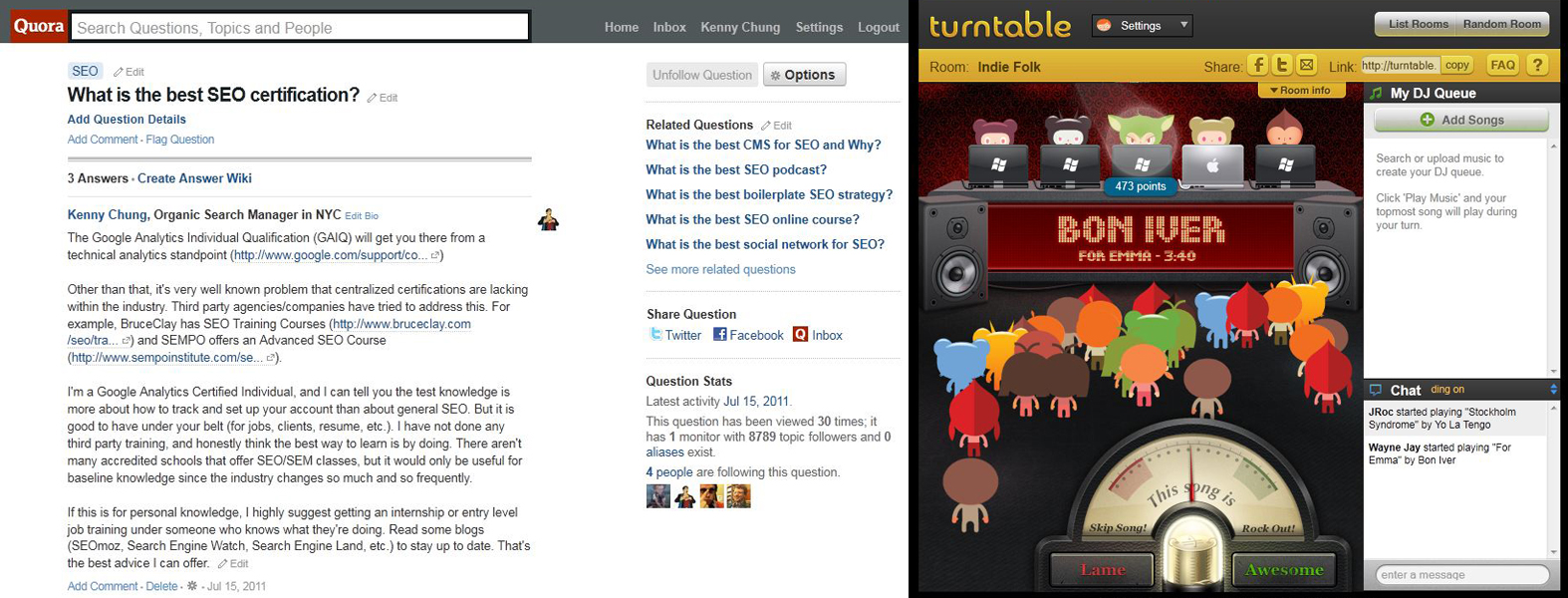Happy Thanksgiving, everyone! This blog post will be (somewhat) in the spirit of food!
It’s no secret that I love Yelp. I love utilizing crowdsourced reviews as a baseline filter for whether or not to visit/spend money somewhere. I love writing my own opinions and mingling with community members. And I love the community itself. The events they throw for Elite members are awesome, and they’re investments back into the system.
It’s such a simple formula. You’d think that a huge behemoth like Google would be able to replicate success with its own Google Places, right? Well, you’d be surprised. I think that Google Places will never have a chance to beat Yelp at their own game, given what they’ve been doing.
Now, this is not a rant against the Google NYC team. I love following them on Twitter and we’ve had some friendly (and not so friendly) exchanges. This is me pointing out the flaw of their incentive structure. Here’s an excerpt from a contest they’re running in conjunction with a recent event:
 Google Places has a really, really bad incentive system (click to enlarge)
Google Places has a really, really bad incentive system (click to enlarge)
So what’s my issue with how Google Places is building its community? It’s mostly extrinsically motivated (see my blog post on Intrinsic vs. Extrinsic Motivation in Crowdsourcing). The more you review, the more likely it is that you win a prize? That works against Google in two ways – firstly, you won’t convince the truly passionate reviewers (the ones who do it to help others, or because they really love writing about local businesses) because you’re not concentrating on them; instead, you’re going for the low hanging fruit: the people who will say, “sure, I’ll write a review in exchange for a chance to win a Chromebook.” And like the pigeon pushing the lever with no pellets coming out, eventually those extrinsically motivated individuals will learn their lesson and give up, abandoning their Places account entirely. That’s not how you build a self-sustaining community.
Secondly, Google Places vs. Yelp will always be an us-versus-them scenario for the die-hards. People who have been following the Google vs. Yelp saga know that there’s bad blood between the two. To sum it all up:
1) Organic search reportedly supplies Yelp with a whopping 75% of its traffic.
2) When Google starting emphasizing their business pages in SERPs, they aggregated reviews from different sites including Yelp to provide their own “rating”. But they also overstepped their boundaries when Google took content directly from Yelp reviews and posted it on those pages, leaving users no reason to click through to Yelp.
3) Google was quiet on the local reviews front and then did a soft launch for Google Places in key cities.
4) Then, out of nowhere, Google bought Zagat.
If you follow the logical progression of things, it’s clear that Google wants to be a bigger player in the local space. Heck, just do a search for “dentist” and see how many results from your city show up. But Google is totally handling this the wrong way. Obviously, Zagat’s business model is in a totally different direction than Yelp’s, which makes me think Google might be taking the high-brow approach. But then again, crowdsourcing is the future of not only search, but of the internet as well (as I’ve mentioned in previous blog posts) so it would be very silly for Google not to make a play in that space. That’s where Google Places would ideally fill the gap. However, I just don’t think they have a sound strategy to build up its review and user base to rival that of Yelp, and they’re just taking too many shortcuts.
Rome wasn’t built in a day, and if any other service can topple Yelp, it will take a lot of time and a much better plan than what Google’s employing.


